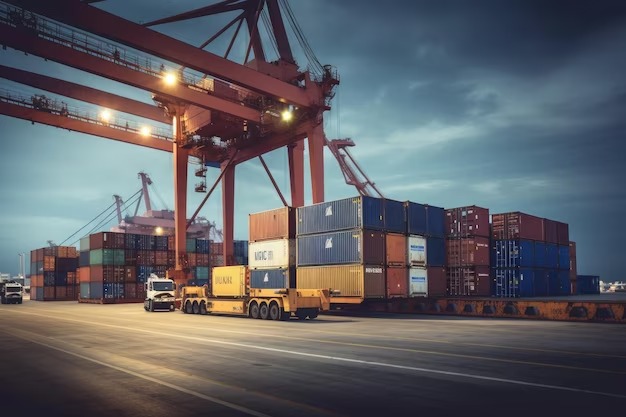The Future of Autonomous Commercial Shipping

The maritime industry stands on the cusp of a significant transformation with the advent of autonomous commercial shipping. This paradigm shift is not merely about technology but encompasses safety, efficiency, environmental impact, and regulations.
Introduction to Autonomous Commercial Shipping
Autonomous commercial shipping refers to the use of self-operating ships that can navigate the oceans without human crews. These vessels are equipped with advanced sensors, AI algorithms, and satellite communications, enabling them to operate independently.
Advancing Technology: The Backbone of Autonomy
- AI and Machine Learning: At the heart of autonomous ships are AI and machine learning algorithms that can process vast amounts of data, make decisions in real-time, and learn from new situations.
- Sensors and Radar Systems: These ships are equipped with an array of sensors and radar systems that provide 360-degree visibility, detecting and avoiding obstacles.
- Satellite Connectivity: Ensuring constant communication with onshore control centers, satellite connectivity is crucial for route optimization, weather updates, and emergency handling.
Safety and Efficiency: A Dual Promise
Autonomous ships promise a significant reduction in human error, which accounts for a majority of maritime accidents. Automated systems do not suffer fatigue, ensuring consistent performance. Moreover, these ships can optimize routes more efficiently, saving fuel and reducing greenhouse gas emissions.
Economic Impact and Job Market Evolution
While there’s concern about job displacement, the rise of autonomous shipping is creating new roles in remote operation centers, AI maintenance, and cybersecurity. The industry’s focus is shifting from onboard tasks to high-tech shore-based roles, necessitating a workforce skilled in these emerging domains.
Regulatory Landscape and Ethical Considerations
As autonomous ships become more prevalent, regulatory bodies are working to establish standards and frameworks to ensure safety and accountability. The International Maritime Organization (IMO) is at the forefront, developing guidelines for autonomous vessels. Ethical considerations, particularly in terms of liability and decision-making in emergencies, are also being rigorously debated.
Case Studies: Leading the Way in Autonomous Shipping
- Yara Birkeland: Touted as the world’s first fully electric and autonomous container ship, it’s set to reduce emissions and improve road safety by removing up to 40,000 truck journeys in urban areas.
- Rolls-Royce’s Autonomous Vessels: Rolls-Royce has been a pioneer in developing technology for autonomous ships, focusing on safety, reliability, and performance.
Environmental Impact: Navigating Towards a Greener Future
Autonomous ships are often designed to be more fuel-efficient and can significantly reduce the maritime industry’s carbon footprint. With the ability to optimize routes and speed, these vessels minimize fuel consumption and emissions, contributing to global environmental goals.
The Road Ahead: Challenges and Opportunities
While the future is promising, several challenges remain:
- Technology Adoption: Integrating and standardizing new technologies across the global fleet is a massive undertaking.
- Cybersecurity: As ships become more connected, they also become more vulnerable to cyber threats, requiring robust security measures.
- Human Element: Balancing technology with the human aspect, including training for new types of jobs and ensuring safety in human-machine interaction.
Conclusion: Setting Sail into a New Era
Autonomous commercial shipping is not a distant dream but an evolving reality. With advancements in technology, shifts in the job market, and increasing environmental awareness, the industry is navigating towards a more efficient, safe, and sustainable future. As stakeholders continue to work together to overcome challenges, the maritime world is set to embark on one of its most significant voyages yet.








